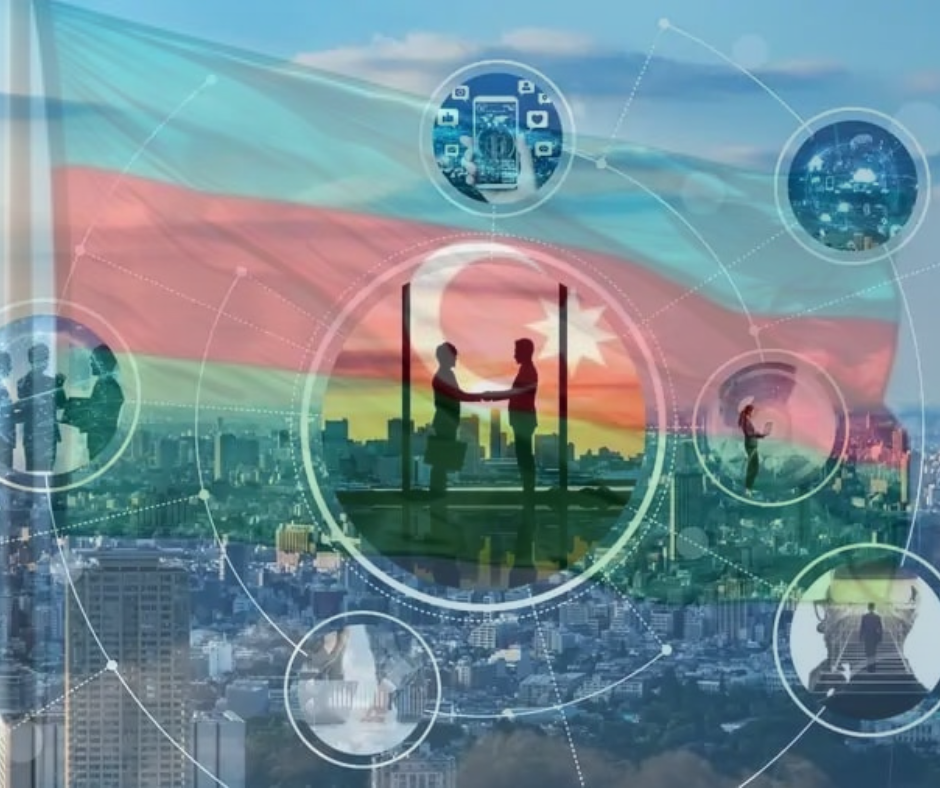|
|
TODAY.AZ / Business
Baku’s Digital Twin project sets new standard in smart mobility
25 May 2025 [08:30] - TODAY.AZ
 By Azernews
By AzernewsTransport is far more than the movement of people and goods—it is a foundation of national development, a catalyst for trade and innovation, and a key to regional stability and global integration. In today’s world, resilient, efficient, and sustainable transport systems are essential to withstand the growing threats posed by natural disasters, pandemics, cyberattacks, and geopolitical tensions.
It was against this backdrop that the International Transport Forum (ITF) Summit convened in Leipzig, Germany, from May 21–23, 2025, bringing together more than 1,200 representatives from over 80 countries to explore the future of transport under the theme “Transport Sustainability Against Global Shocks.”
This year’s summit marked a historic milestone for Azerbaijan, as the presidency of the ITF was officially transferred from Chile to Azerbaijan for the 2025–2026 term.
This prestigious appointment is more than ceremonial. It places Azerbaijan at the centre of global discussions on transport resilience, innovation, and sustainability. As a full member of the ITF since 1998, Azerbaijan’s elevation to the presidency reflects the country’s growing influence and achievements in regional and international logistics.
Transport systems are not just about moving people or goods—they are fundamental to a nation’s economic growth, regional integration, and social cohesion. Efficient transport infrastructure reduces trade costs, enhances access to markets, creates jobs, and facilitates emergency response in times of crisis. In a globalised world, countries that can move faster—literally and figuratively—tend to grow faster.
Azerbaijan’s geographical position as a crossroads between Europe and Asia gives it natural strategic value. But geography alone is not enough. Through extensive investment in roads, railways, ports, and digital infrastructure, Azerbaijan has actively transformed itself into a pivotal transport hub, defying the conventional wisdom that only coastal nations can dominate regional logistics.
President Ilham Aliyev: “Azerbaijan is indispensable to Eurasian transport”
In a speech dedicated to Azerbaijan’s transport policy, President Ilham Aliyev emphasised that today’s Eurasian transport map is incomplete without Azerbaijan. With both the East-West and North-South corridors traversing its territory, Azerbaijan is a linchpin for trade routes connecting China to Europe and Russia to the Middle East.
President Aliyev highlighted that, despite lacking access to open seas, Azerbaijan has created one of the most efficient transport infrastructures in the region. Projects such as the Baku-Tbilisi-Kars railway and the planned Zangazur Corridor, which gained international attention following Azerbaijan’s victory in the Second Garabagh War, illustrate the country’s determination to create lasting transport solutions with regional impact.
“Infrastructure is not only concrete and steel,” the President said. “It is a tool for economic development, regional cooperation, and social inclusion.”
President Aliyev also detailed Azerbaijan’s achievements over the last two decades: more than 21,000 kilometres of highways constructed or upgraded, 335 bridges, 45 tunnels, and over 3,000 kilometres of railway lines built or modernised. The Absheron Circular Line and the acquisition of new rolling stock reflect the country's commitment to modernisation.
Digital transformation: Baku’s “Digital Twin” leads the way
Azerbaijan’s approach to transport goes beyond traditional infrastructure. At the ITF Summit, Deputy Minister of Digital Development and Transport Rahman Hummatov highlighted the country’s bold steps in urban digitalisation, particularly the development of a “Digital Twin” for Baku.
This cutting-edge project creates a virtual replica of the city, using data collected from mobile operators, navigation systems, and public transport networks, amounting to hundreds of terabytes. It simulates movement patterns, identifies congestion hotspots, and tests the impact of future infrastructure projects before they are built. The result is a scientifically grounded, cost-effective, and strategic approach to urban planning.
Already, over 20 major infrastructure projects have been modelled using the digital twin, enabling evidence-based prioritisation. This forward-looking methodology underscores Baku’s ambition to join the ranks of global smart cities.
URL: http://www.today.az/news/business/259347.html
 Print version
Print version
Connect with us. Get latest news and updates.
See Also
- 31 August 2025 [20:30]
Azerbaijan, EU discuss future of Nakhchivan's transport and economic development - 31 August 2025 [17:09]
Weekly review of Azerbaijan’s precious metals market - 31 August 2025 [15:52]
Azerbaijan enters new stage with digital oversight of state finances - 31 August 2025 [11:00]
Azerbaijan’s commitment to climate transparency extends beyond COP29 - 31 August 2025 [10:10]
Opening of Zangazur Corridor to create additional opportunities for connectivity between Azerbaijan, China - Hikmet Hajiyev - 30 August 2025 [16:40]
Aghdam–Khankendi railway line set for completion next year - 30 August 2025 [15:38]
Azerbaijan Railways to launch restoration of Nakhchivan’s railway infrastructure - 30 August 2025 [14:20]
Azerbaijan ready to welcome more tourists - 30 August 2025 [13:21]
Tourism Agency expands beach access with new coastal upgrades - 30 August 2025 [10:00]
Baku–Aghdam train service resumes after 32-year hiatus
Most Popular
 Minister Uralo?lu highlights strategic importance of Zangazur Corridor and new railway projects
Minister Uralo?lu highlights strategic importance of Zangazur Corridor and new railway projects
 National Solidarity Commission pushes forward unique model against terror
National Solidarity Commission pushes forward unique model against terror
 Azerbaijan, Uganda explore new horizons in agricultural cooperation
Azerbaijan, Uganda explore new horizons in agricultural cooperation
 Turkish business community backs rate cuts amid inflation battle
Turkish business community backs rate cuts amid inflation battle
 Sweden proposes to ban sale of phones
Sweden proposes to ban sale of phones
 Armenian consul arrested over alleged espionage for Azerbaijan
Armenian consul arrested over alleged espionage for Azerbaijan
 Evidence presented in Baku trial shows direct Armenian military aggression
Evidence presented in Baku trial shows direct Armenian military aggression
